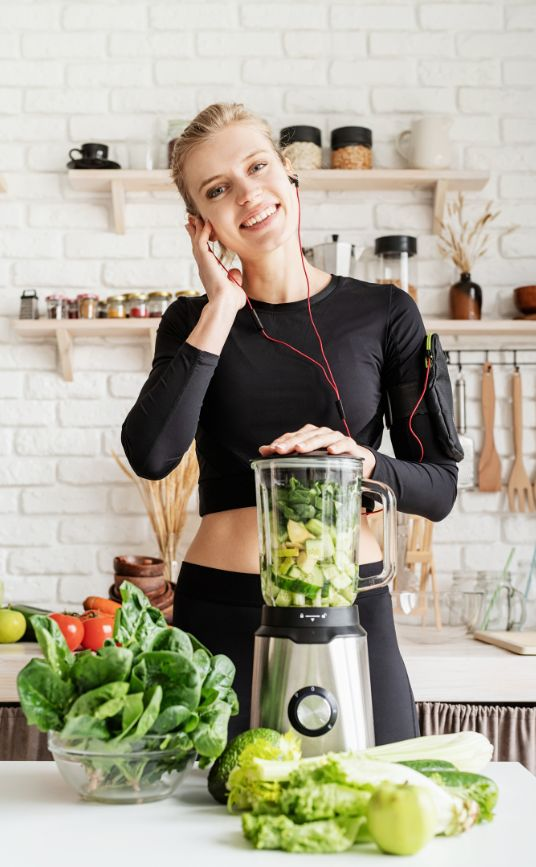You’ve probably heard that there is power in gratitude. Today there’s a lot of attention being paid to gratitude and for a good reason. Simply practicing gratitude can make you a happier person.
But how does gratitude increase the level of happiness you feel? Scientists have asked the same question, and they’ve come up with some interesting ways this works.
How Gratitude Makes You Happier
Several different studies have looked into the concept that practicing and having gratitude in your life can make you happier.
One study from Kent University looks specifically at letters of gratitude as they relate to well-being. The study begins by explaining that 40% of happiness comes from intentional activities, 50% is genetic, and 10% is a circumstance.
The belief is that by turning to the area where you have some influence, intentional activities, you can boost happiness. They found that the act of writing three letters of gratitude improved and sustained feelings of well-being. They suggested that more letter writing could have an even greater gain.
Another assessment published in the Journal of Positive Psychology looked at gratitude, hope, and happiness. This assessment was based on two studies, one where trait gratitude was examined in relation to hope and happiness, the other asked subjects to write about future hopes and to remember past hopes that were fulfilled, and there was also a control group. They discovered that grateful remembering prompted significant increases in hope and happiness.

A well-known study on gratitude by Emmons and McCullough asked participants to a) keep a daily journal of things they were grateful for, b) write about things that annoyed them, and c) track reasons why they were better off than others.
The results were that subjects expressing gratitude showed improvements in optimism, improvements in exercise, and a reduction in physical ailments. This goes above and beyond happiness, to show that gratitude can affect other areas of your life and, logically, if those areas improve, they will also boost your happiness.
And these are just a few studies, there are many more that suggest the benefits of gratitude are even more far-reaching. But how can this be?
Your Brain on Gratitude
Looking at brain activity when someone is expressing or feeling gratitude gives us greater insight into how powerful gratitude can be. This is further detailed by the National Institute of Health in a study where they examined blood flow in the brain during gratitude. It appears that the greater the level of gratitude, the higher the activity in the hypothalamus.

The hypothalamus portion of your brain controls a lot of essential functions like eating, drinking, and sleeping, but it also plays a significant role in your metabolism and stress. This works hand-in-hand with studies that found gratitude improved sleep and exercise and resulted in less illness and pain.
Examination of the brain during gratitude also found that the regions of the brain that produce the neurotransmitter dopamine (the feel-good chemical) are activated. This means your brain is rewarding your gratitude with good feelings that make you want to do it again.
How to Be More Grateful
Now that you can see just some of the science behind how gratitude can make you happier, it’s time to put that into practice in your own life. So, what are the best ways to practice gratitude? The following are proven methods to help you start being more grateful.
Gratitude Writing
Journaling, letter writing–whatever form your written gratitude takes is fine, as long as you write it down. The first study mentioned above discovered that simply having gratitude thoughts was not as effective as writing them. They found that spending 10-15 minutes writing about gratitude in your life made a significant difference after only three sessions–so, why not get started!

Verbalize Gratitude to Others
Make a point of telling someone something you’re grateful for on a daily basis. It’s easy if you live with others to start noticing the things they do that you appreciate. It could be something as simple as picking up their towel after a shower.
If you don’t live with others, it can be challenging at first to feel comfortable telling your co-worker, or even a stranger, that you’re grateful for the things they do, but it’ll get easier over time.
Tell Yourself You’re Grateful
Let’s not entirely focus on external gratitude, if we do, we’re missing a huge component of your life–you! Try telling yourself in the mirror the things you’re grateful for about you.
Mirror talks are a great way to show gratitude, boost self-esteem, show self-compassion, and give yourself a pep talk that will help get you through the day.
There’s a cyclical effect in your brain when you begin to actively practice gratitude. Your brain releases dopamine, and it feels good, which tells your brain to do that thing again. Interestingly, your brain’s attention is limited. It only has so much bandwidth to focus, and it’s hard for your brain to focus on both good and bad things at the same time.
So, conditioning yourself to be grateful begins the positive cycle. While it may take effort, it will become second nature, and you’ll begin to experience more spontaneous gratitude.

If you like this article and are interested in reading more like it on your path to health-lightenment, follow Live Conscious on Facebook @weliveconscious and Instagram @weliveconscious.
Waking Up To Wellness
Gratitude is a powerful thing. It’s so much more than writing a thank you note for a gift or throwing a “thank you” into the wind when someone holds a door open. Feeling true gratitude can make you feel happier in your day-to-day life, and there’s science to back that up.
When you’re grateful, the hypothalamus area of your brain gets more nourishing blood flow, making it more active. This has a ripple effect that can lead to greater life satisfaction, better sleep, positive eating, better exercise habits, and happiness. The great news is it’s “contagious,” in that your brain likes the way this feels and wants to do it again, making this is a good and easy habit to develop.
There is evidence that spontaneous gratitude is more meaningful than forced gratitude, but luckily, once you begin practicing gratitude, it will come naturally and spontaneously. And that’s something to be grateful for!









